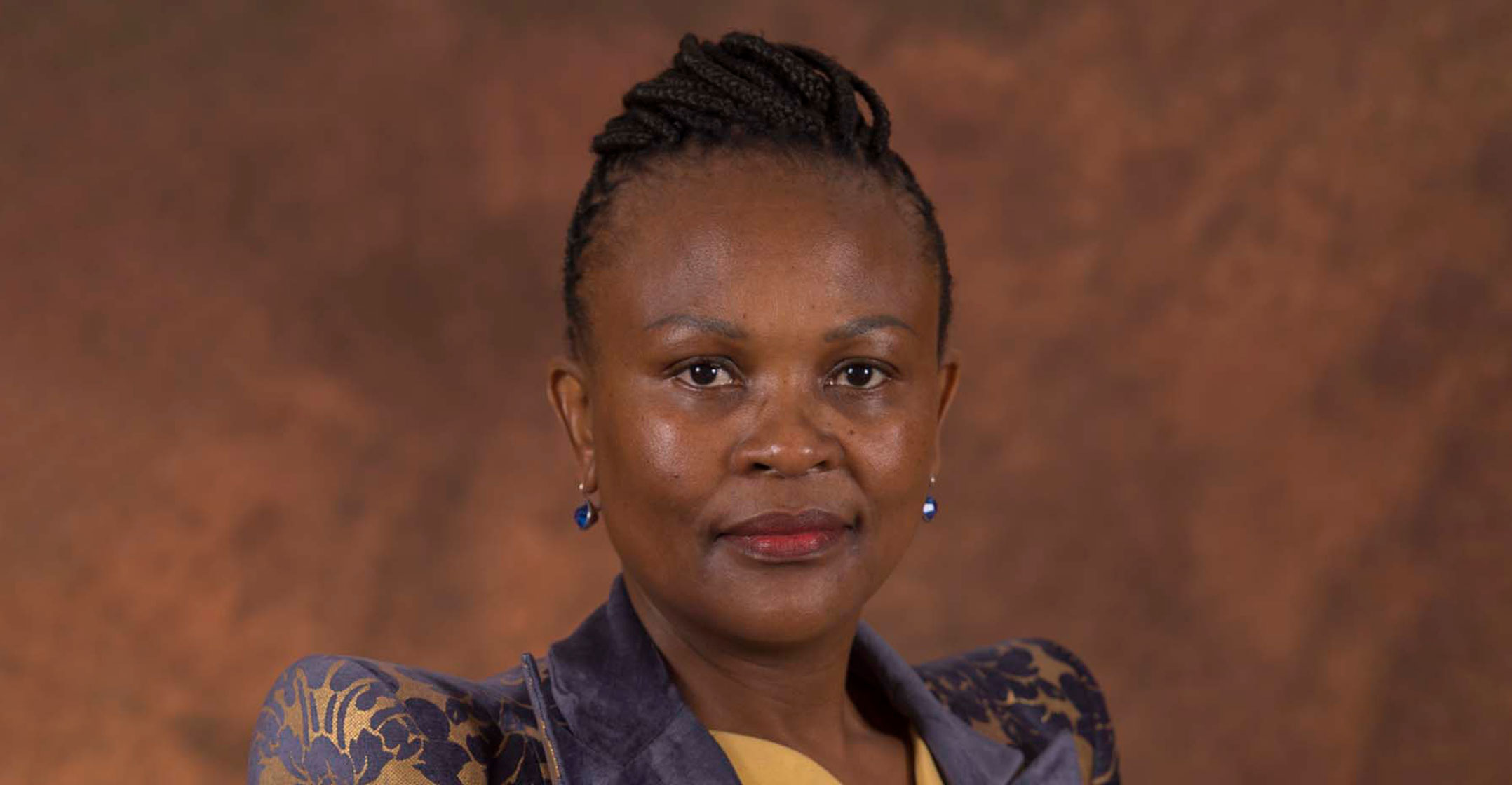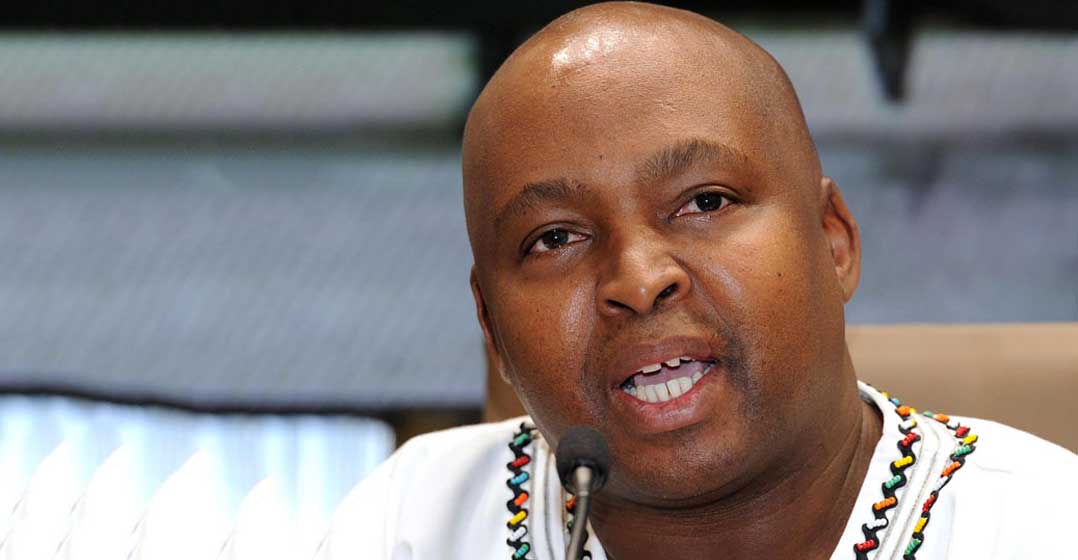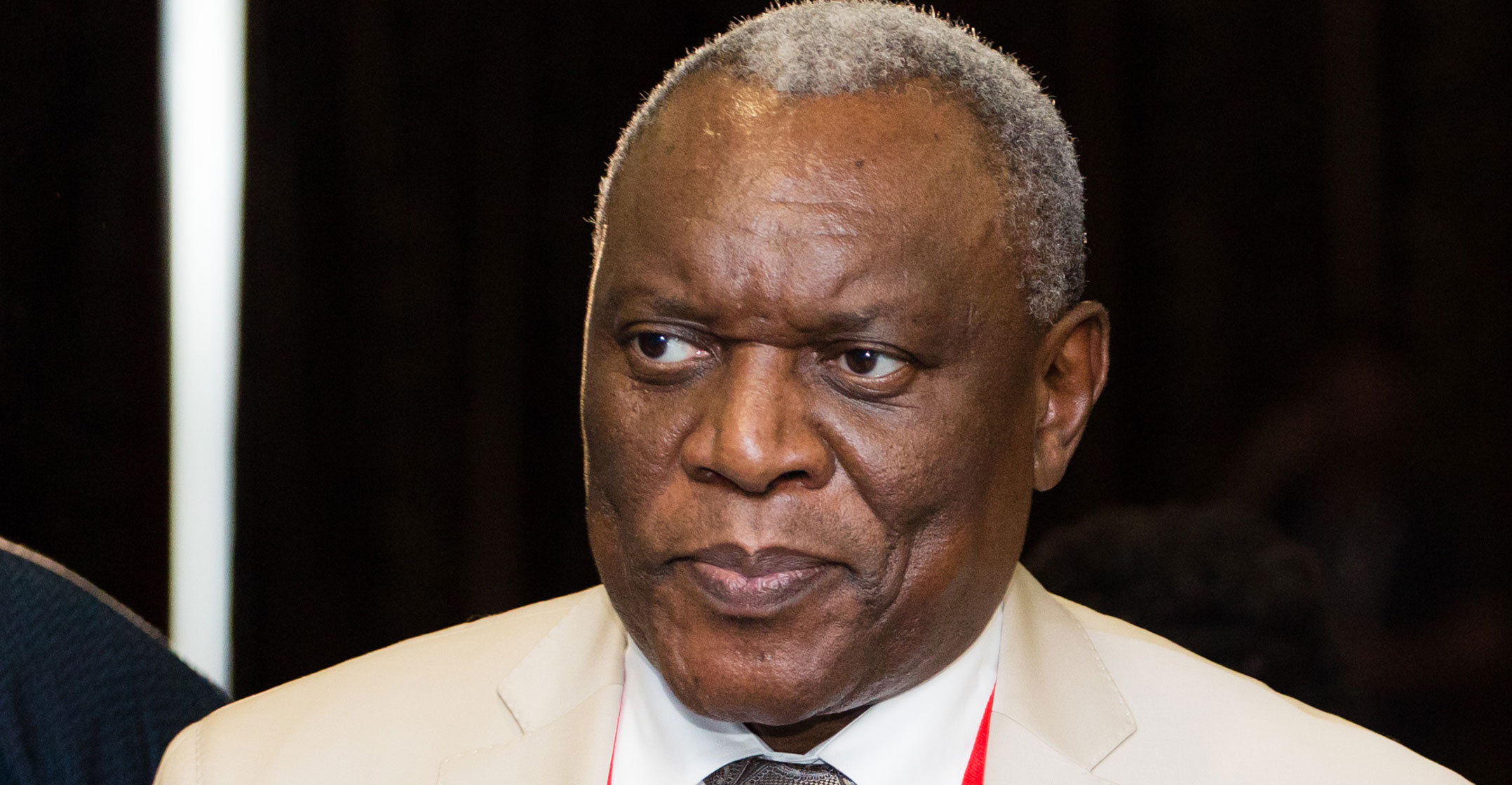
The high court in Pretoria has delivered a damning judgment against Public Protector Busisiwe Mkhwebane, who had sought to shield Lumko Mtimde, the former CEO of government agency Usaasa, from disciplinary action and dismissal.
Judge DS Molefe has found that Mkhwebane’s report, which made serious allegations against the former board of underserviced-area telecommunications agency Usaasa — prompting former communications minister Siyabonga Cwele to fire all the directors in 2018 — was invalid and must be set aside.
The Public Protector was also ordered to pay the costs of the application, although Molefe stopped short of making a punitive costs order against her.
Former members of the board, led by former chairman Mawethu Cawe, took Mkhwebane to court to clear their names. Cwele fired the board on 30 August 2018 on the basis of the damning – but now invalid and overturned – Public Protector’s report. The former board members have been vindicated, with the court finding that Mkhwebane failed to “conduct her investigation as comprehensively as possible in order to inspire confidence that the truth had been discovered”.
‘Inaccurate and not reliable’
“Her report is inaccurate and not reliable, and the remedial action is irrational in that it is not rationally connected to the information before her and the reasons given for it,” Molefe said in his judgment.
The former board members’ fight with Mtimde dates back to at least 2017, when in June of that year the board adopted a resolution placing the CEO on suspension. (This suspension was never implemented due to intervention by Cwele.)
The board appointed a three-member subcommittee to identify issues in relation to the conduct and performance of Mtimde in all areas on which the board had taken resolutions. “A preliminary report by the subcommittee was adopted, resulting in a board resolution to institute disciplinary proceedings against Mtimde,” the judgment said.

On 1 March 2018, the board adopted a resolution to place Mtimde on suspension with full pay. He filed an urgent application in the labour court challenging this suspension, and also sought an order to interdict the disciplinary inquiry, which was due to commence on 25 April of the same year. The day before the labour court was due to hear the matter, however, it struck the application from the roll with costs for lack of urgency.
The disciplinary inquiry, chaired by an independent chairman, commenced on 25 April 2018, and Mtimde was charged with misconduct and financial irregularities. Mtimde failed to attend the hearing and informed the chairman that he was ill and had been hospitalised. The inquiry was postponed to 31 May and 1 June 2018 to accommodate Mtimde, according to the judgment.
On 25 May 2018, Mtimde advised the chairman of the hearing that he had lodged a “protected disclosure” complaint regarding the board’s remuneration of a new Usaasa company secretary with the Public Protector and, as a result, the hearing should be postponed. The request for a postponement was declined and the hearing proceeded in Mtimde’s absence.
Mtimde alleged in his complaint to Mkhwebane that the appointment and remuneration of the company secretary by the Usaasa board was in violation of the provisions of the Companies Act, the Usaasa recruitment and selection policy, and various other pieces of legislation, including the Electronic Communications Act and the Public Finance Management Act.
In his complaint, Mtimde alleged that by appointing a company secretary at a salary above the one advertised for the post, the board had behaved improperly. This alleged impropriety was also disclosed to the auditor-general and national treasury.
‘Protected disclosure’
He also alleged the “corrupt and undue influence” by the board members against attempts he’d made legally to set aside the continuation of the “unlawful and irregular” production and manufacturing of set-top boxes needed for broadcasting digital migration.
On 24 May 2018, the Public Protector advised the Usaasa board that she had accepted Mtimde’s complaints and classified the information disclosed by him as a “protected disclosure”. She requested the board not to subject him to “occupational detriment”.
The next day, she addressed a letter to the applicants in which she requested that the board should suspend all further disciplinary processes against Mtimde pending the outcome of her investigation. The board then obtained a legal opinion from senior counsel, who advised it that Mkhwebane had no authority to request that the disciplinary inquiry be halted while an application on the same facts was still pending before the labour court.

On 30 May 2018, Mtimde sent an e-mail to the chair of the disciplinary inquiry requesting a postponement due to ill health. This request was denied and the disciplinary hearing was completed in Mtimde’s absence. He was subsequently dismissed.
The high court found that the Public Protector had a duty to afford the Usaasa board members an opportunity to reply to the complaints before a report was issued. Because she failed to do so, the investigation was “procedurally unfair”. The board members were within their rights to continue with the disciplinary proceedings against Mtimde, and the Public Protector’s finding that the applicants should have halted the proceedings was “unlawful”.
The court also found that the Usaasa board was within its rights to remunerate the company secretary the way they did. “Although the CEO may appoint the company secretary, this appointment remains subject to approval by the board. The appointment of the company secretary is therefore the purview of the board,” the high court found.
“In her report, the Public Protector was wrong in her reliance on section 83(5) of the Electronic Communications Act in respect of the appointment of a company secretary being the purview of (Mtimde) to the exclusion of the board.
“In my view, the Usaasa board complied with the Public Finance Management Act and the Electronic Communications Act, which provide for and recognise the powers of the board to control the affairs of Usaasa and ensure compliance with its policies and all the applicable legal prescripts,” Molefe said in the judgment.
‘Nothing untoward’
“There was therefore nothing untoward in the board’s appointment of the company secretary and the Public Protector’s finding in this regard was irrational and unlawful and should be set aside.
“I am satisfied that the applicants acted within their powers to remunerate the company secretary at an amount higher than was previously advertised for the post. They did not commit irregular expenditure nor financial misconduct. The Public Protector’s finding against the applicants in this regard was irrational and should be set aside.”
Meanwhile, the conclusion in the Public Protector’s report that Mtimde’s disclosure to the auditor-general and national treasury was a protected disclosure is irrational and unlawful, the court said.
 Based on a “misguided belief that there was a protected disclosure”, the Public Protector directed that an “unprecedented form” of remedial action be taken: that the minister, Cwele, take “decisive and appropriate action against the board, and the board members should personally pay the costs of litigation and the disciplinary inquiry .. and that the entire board be declared delinquent directors”.
Based on a “misguided belief that there was a protected disclosure”, the Public Protector directed that an “unprecedented form” of remedial action be taken: that the minister, Cwele, take “decisive and appropriate action against the board, and the board members should personally pay the costs of litigation and the disciplinary inquiry .. and that the entire board be declared delinquent directors”.
She also directed the board to lift Mtimde’s suspension and apologise to him for the manner in which the board handled his complaint. She also directed Mtimde to recover the costs Usaasa incurred with regard to the appointment and remuneration of the company secretary from the board members personally.
But the high court was having none of this and found the remedial action not only to be improper but also irrational.
“I am not satisified that the Public Protector conducted her investigation as comprehensively as possible in order to inspire confidence that the truth had been discovered. Her report is inaccurate and not reliable, and the remedial action is irrational in that it is not rationally connected to the information before her and the reasons given for it,” the judgment said. As a result, the court found that Mkhwebane’s report is “invalid and is reviewed and set aside”. — © 2021 NewsCentral Media




